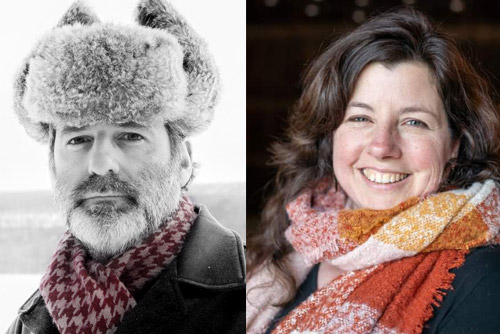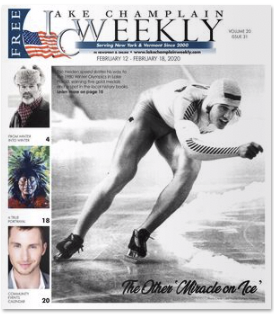Jennifer Moore
Pianist
Jennifer Moore, pianist, is currently the PreK-12 Music Teacher for the Willsboro Central School District in northern New York. She holds an MFA in Piano Performance from Purchase College, SUNY, a MM degree in Music Education from the Crane School of Music, SUNY Potsdam and is currently a DMA candidate in Music Education at Boston University. She has also attended the Choral Institute at Oxford as both an Associate (2017) and Full Conductor (2019) where she studied conducting with James Jordan, James Whitbourn, Steven Pilkington and the Westminster Williamson Voices.
Jennifer has a broad range of performance experience as a pianist, chorister and conductor. She studied vocal accompanying with Steven Blier, Dennis Helmrich, Hans Broekman, JJ Penna and Dalton Baldwin. Performances have brought her to Lincoln Center as a member of the Westminster Symphonic Choir with the New York Philharmonic under the direction of both Joseph Flummerfelt and maestro Kurt Masur, UNESCO in Paris, France, the Chicago Cultural Center, Northwestern University as a studio assistant for William Warfield and as accompanist for the Young Artists Program at the Chicago Lyric Opera.
An active performer in the northern Adirondack region, Jennifer and her duo partner, Dr. Rose Chancler, recently performed at the Depot Theater in Westport, NY with veteran actor and director, Kenney Green, at the Middlebury Town Hall Theater with Broadway legend, George Hearn and at Piano By Nature in Elizabethtown, NY with WCS Theater Educator, Derrick Hopkins. Jennifer can often be heard in our robust regional community and school musical theater productions as pianist, music director and conductor. She also serves as the organist and choir director at St. John’s Episcopal Church in Essex, the Board of Directors for Piano By Nature Concert Series. She was honored as a recipient of the 2019 Women of Distinction as a Community Leader by the Girl Scouts of Northeastern New York and has been invited to be recognized as one of “Crane’s Women in Music Education” later this spring at the Crane School of Music, SUNY Potsdam.
Jordan D. Lewis
Baritone
American-born baritone Jordan D. Lewis credits his artistic and technical development as a singer to his study with Master Teacher and world-renowned soprano Dr. Veronica Tyler. Mr. Lewis’ operatic roles include performances as Gianni Schicchi in Gianni Schicchi, Figaro in The Marriage of Figaro, Marcello in La Boheme, Guglielmo in Cosi fan Tutte, Papageno in Die Zauberflöte and Ottone in The Coronation of Poppea. He has toured in recital in the United States and Canada. Lewis operates a recording studio for classical music, runs a digital media company for arts and nature non-profits, and is a commercial and large format landscape photographer.
Lewis often works at the intersection of classical music with visual imagery. The extraordinary musical beauty of Schubert’s lieder is based upon texts full with the Romantic Era sentiments of alienation and the human relationship with Nature. Some ten years ago, Lewis began to assemble the media for both a movie and live performance of Schubert’s epic Winterreise, “Winter Journey,” in which the epic struggle of the protagonist is reflective of all human journeys. Over multiple winters, Lewis assembled the visual elements of the story, and life unfolded in ways in which the project became not only possible but almost inevitable, culminating in meeting a real-life, self-named ‘ferryman of souls,’ like the Hurdy Gurdy Man in Winterreise, who had built a megalith park of standing stones ‘where the veil is thin.’
A new chapter of Lewis’ own journey unfolded when he met Piano by Nature Artistic Director Rose Chancler, and assisted with the re-design of the PBN website. This led to a discussion with pianist Jennifer Moore, and the discovery that she too has always felt a deep calling to perform Winterreise, a song cycle which Schubert composed with pianist and singer as equal partners in the expression and telling of the story. The journey continues!
NOTES ON THE PERFORMANCE
Franz Schubert composed his epic song cycle, Winterreise, “Winter Journey,” a setting of Wilhelm Müller’s narrative poetry, in two parts, each with 12 songs, in February and October of 1827. Schubert was still correcting the proofs in preparation for publication days before his death on November 19, 1828. Winterreise is a memory piece, the internal monologue of a man who has returned to the town where he first fell in love, who, as he wanders presently in the cold of winter, his tears freezing as they fall on his cheeks, recalls a life of what might have been. True to the Romantic Era, each of the 24 songs in the cycle is its own psychological treatise and reflection of the human experience in our natural world.
Winterreise is Schubert’s potent melodic distillation in which he transformed forever the nature of the relationship between singer and pianist into a collaborative partnership, giving equal importance to the pianistic expression of emotion and drama in the story. The piano tone-paints the wind in the trees, the vividly rushing water under the ice, the singing birds, baying dogs, the grating rusty weathervane, the post horn calling, the drone and repeated melody of the hurdy-gurdy. The poet internalizes all these phenomena, and equates them with his own emotions in the telling.
“As a stranger I came, and as a stranger I depart.” So begins the journey of heartbreak, hallucination, struggle, hope, elation, resignation, and transcendence. Parts I and II each have individual dramatic arc, Schubert composed them as such, but also represent a continuum together. Part I covers the sequence from leaving his beloved’s house to the resigned solitude of the soul of the wanderer. Part II documents the torments of reawakened hope and the path to resignation. The singer Elena Gerhardt said of Winterreise, “You have to be haunted by this cycle to be able to sing it.” Long a passion for both pianist Jennifer Moore and baritone Jordan D. Lewis, in addition to the music, each performance will include media bringing to life the experience of the journey for the audience.



